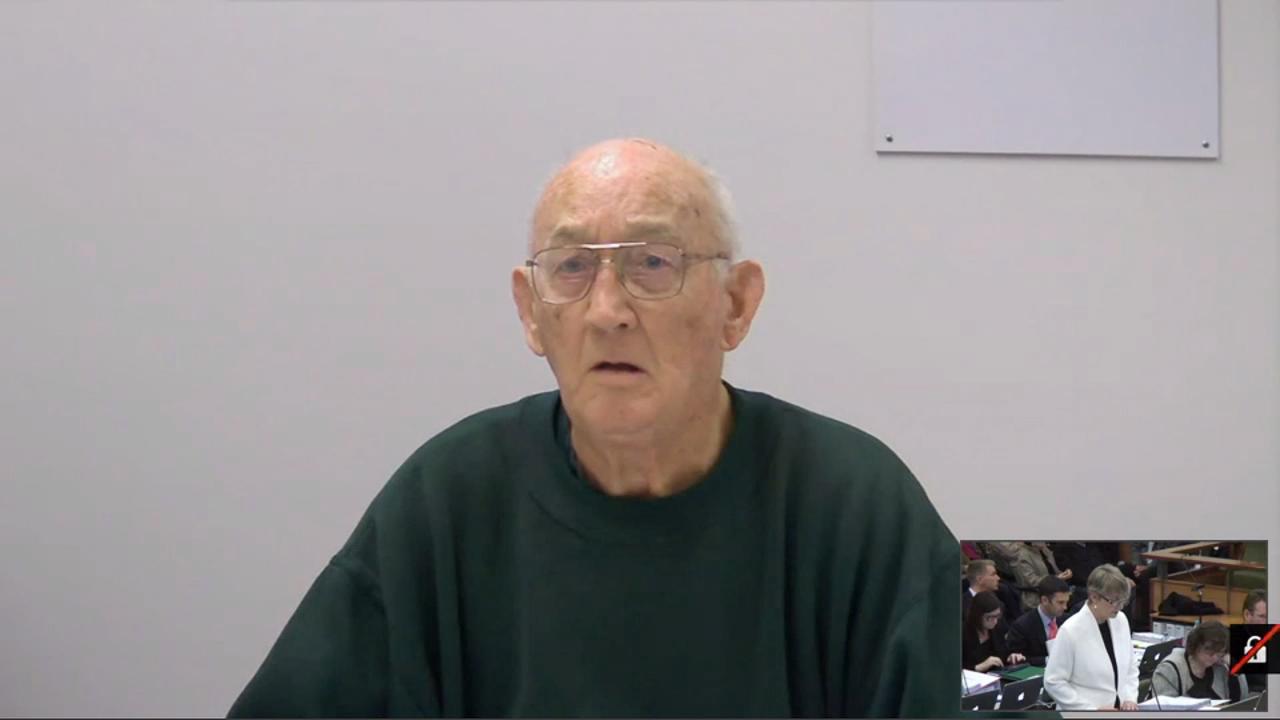George Pell’s court performance elicits acceptance, fury
When George Pell strode into the Verdi room at the Hotel Quirinale, he did not look at the survivors from Ballarat.
When George Pell, in a sharp suit and clerical collar, strode into the Verdi room at the Hotel Quirinale he did not look at the survivor group of more than 20 people who had travelled from Ballarat.
Stony faced and tense, he went straight to the small makeshift witness box. A lot of people had been waiting a long time for this moment.
After the first fours hours of what could be a week-long testimony, Cardinal Pell spoke about his time as a young priest.
The tone varied from abrupt testiness to occasional helpfulness to apologetic bewilderment.
He left the packed room feeling comfortable enough to nod to a familiar face in the survivors’ group. Like a politician facing election, he then gladhanded Italian media and fellow clergy — two hands in a grip while looking ahead to the next social crutch to help ease his exit.
He then went to a hotel suite for more than an hour and, once all of the survivors and witnesses had left, ran the gauntlet of the media staking out every entrance.
His parting words under the pop of camera flashlights? “I hope we can help them.”
Cardinal Pell might then be surprised at the acceptance, and the fury, his carefully worded testimony, and failing memory, had elicited.
Andy Collins, first abused in Ballarat 40 years ago at the age of seven, said: “It’s best performance to date and I would like to think that is because we are here in the room and the media, too, and he has to be reminded of what he says because everyone is watching. The cynic in me says (his vagueness and failure to recall) it’s more of the same, but it’s the best responses we have heard ever. But so far we have had the easy questions and we will see if that continues.’’
When Cardinal Pell was giving evidence, the survivors would often roll eyes, glance across or jot notes whenever he paused, stumbled or qualified his answers. There were many ‘‘can’t remember’’, and over-coached helpful phrases like “I don’t want to rule it out because my level of recall is not sufficient to rule it out”. At times the responses were short and sharp. At other times, when on firm ground, he would elaborate to provide context.
A survivor named Paul said listening to Cardinal Pell’s evidence was difficult because it transported him back to a very dark place. ‘’I feel terrible,’’ he said outside the room. “It’s very confronting to have to go back to when we were children and have George think it was hard to work out what was going on. To tell us now he was not alerted to things properly is awful.
“In 1971, 72, 73 it became the epicentre of abuse in Ballarat. Every (school) grade had an offender and the chaplain (Gerard Ridsdale) was the worst pedophile and George lived 50m from them.’’
That apparent ignorance is at the centre of questions from counsel assisting, Gail Furness.
Cardinal Pell admitted his instinct was to protect the institution of the church from shame, and then later to try and protect assets. When he started talking about redress from the church there was a spark of interest in the room. So, too, when he admitted to first hearing of clergy sexual abuse in the early 1970s. “In those days if a priest denied such (pedophilia) activity I was strongly inclined to accept the denial.’’
Survivors pinpointed inconsistencies. David Ridsdale, nephew of Gerard Ridsdale said: “Some of the people he said he didn’t know doesn’t fit with well our memories.
“I know his comment that he was hardly around a (Ballarat) school does not fit well with our memories.’’



